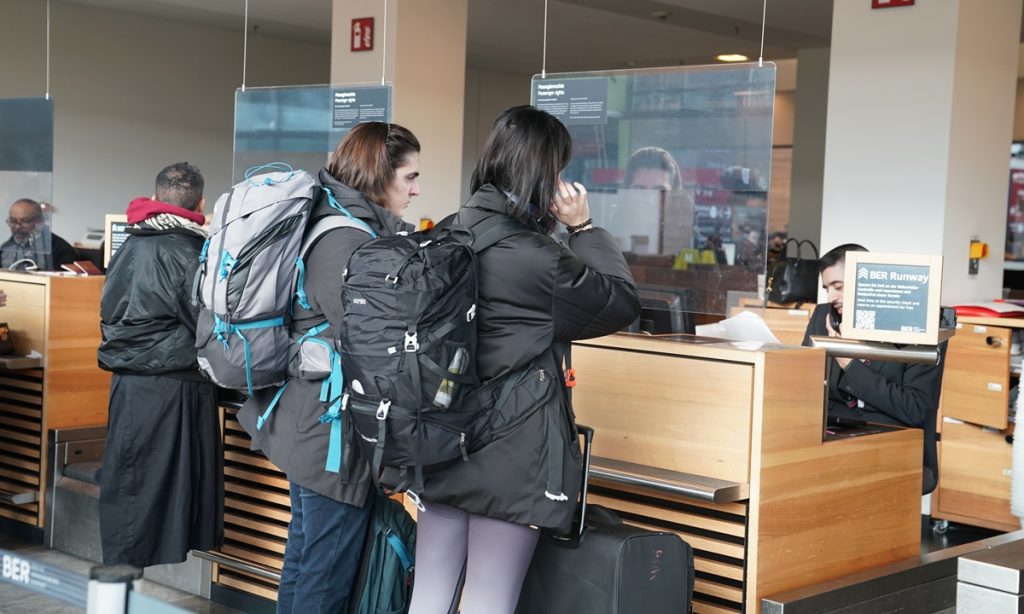Update: China extends visa-free policy to more nations, improves payment services for foreigners, in bid to boost inbound travel

China announced Thursday to waive visa requirements for citizens from six European countries, including Switzerland, Ireland, Hungary, Austria, Belgium and Luxembourg, signaling the country's commitment to attract more foreign visitors, effective on March 14.
In another step to facilitate visits by foreign travelers, the State Council, China's cabinet, released a notice on Thursday, asking banks and payment and clearing entities to strengthen cooperation to continuously improve and expand mobile payment services, with a particular focus on improving mobile communication and payment services for foreigners coming to China.
The notice also urged to improve payment services for international consumers in various tourism and entertainment venues, both online and offline. It aims to support internet platforms associated with essential services to enhance the payment experience for foreigners in China across different business sectors.
Shortly after the notice, Alipay, a major Chinese payment platform, issued a statement on Thursday, stating that it has been working to improve payment services for foreign nationals. Specifically, it has raised transaction limit for international users, with the maximum single transaction limit increased from $1,000 to $5,000 and the maximum annual transaction limit increased from $10,000 to $50,000. It also plans to introduce new services such as multi-lingual translation.
The move is expected to attract more foreign tourists to visit China. Following the announcement, online travel platforms have reported changes in related data and have pledged to offer improved services for overseas visitors.
According to data from Trip.com Group, a major online travel service platform in China, flight capacity from Hungary to China has doubled compared to the same period in 2019, while flights from Belgium are operating at about 90 percent of their 2019 levels. The trends suggest a rapid increase in travelers from those countries to China.
The move is expected to boost inbound tourism, serving as a primary facilitator for foreign tourists entering China by removing a major hurdle, Li Mengran, a manager at Beijing Utour International Travel Service Co, highlighted the positive impact of the visa exemption policy on tourism in a statement sent to the Global Times.
The announcement has also led to a surge in search volume for international flights on platforms including Tongcheng Travel, with a nearly fourfold increase in ticket searches for listed visa-free countries as of 12 pm Thursday.
Foreign Minister Wang Yi announced the news at a press conference on sidelines of the ongoing two sessions on Thursday. He appealed for reciprocal visa exemptions for Chinese citizens.
"We hope that all countries will offer identical visa convenience to Chinese citizens, as we work together to create a streamlined network for cross-border exchanges. This will accelerate the restoration of international passenger flights, allowing Chinese citizens to travel on a whim and ensuring foreign friends feel at home," he said.
The expanded visa-free policy signals China's active and determined opening-up policy, which will not only accelerate tourism, but also facilitate people-to-people exchange and trade between China and Europe, Qin Jing, vice president of Trip.com Group said.
Qin also mentioned various initiatives, including improvements to entry payment systems, aiming to further facilitate inbound tourism. She called on tourism operators to prepare for a surge in visitors by developing tourism products, providing bilingual services, and improving service levels to accommodate the anticipated growth in inbound tourism.
In December 2023, China implemented a trial visa-free entry for citizens from six countries, including France, Germany, Italy, the Netherlands, Spain and Malaysia. By January 9, visa-free entries from these countries had reached 147,000, with orders for China tourism during the Spring Festival period doubling compared to the same period in 2019, according to Trip.com Group data.